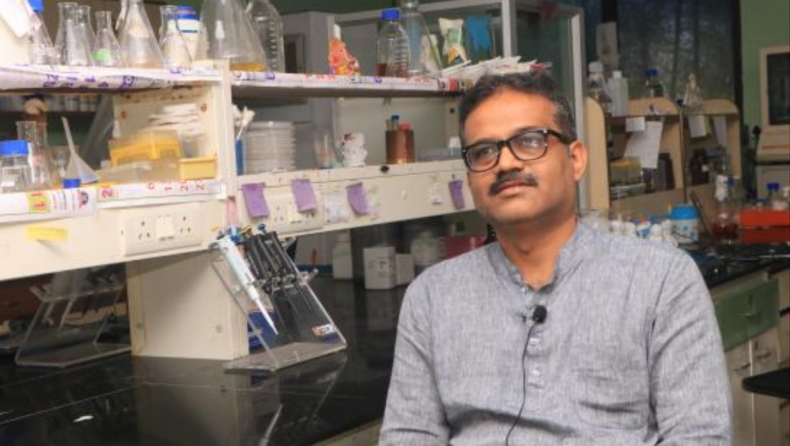One of the major factors that scale a nation’s progress depends upon how it manages to dispose of the waste left behind during the process of development. Indian Institute of Technology (IIT) Madras has disclosed a cost-effective and eco-friendly process to manage agricultural waste. A period of methodized research led the team to find a bacterium that has the potential to convert agricultural waste into industrial enzymes.
The Brains Behind IIT Madras

A plethora of methods and solutions for agricultural waste management are being reported on a daily basis. An innovative one is the recent findings by a team of researchers including but not limited to, Professor Sathyanarayana N Gummadi, faculty of the Department of Biotechnology, IIT Madras, and Rekha Rajesh, Research Scholar. Their findings concerned with this study are published in the peer-reviewed journal Biomass Conversion and Biorefinery.
Waste Management – The approach of the Study IIT Madras
The researchers identified a bacterium called ‘Bacillus sp PM06’ that can aid in the production of industrially useful products like cellulase, amylases, and metabolites like acetic acid and ethanol from agricultural waste. The novel strain has been extracted from sugar cane mud; a compressed sugar industry waste produced during the filtration of cane juice. The isolated organism with its fermentation capacity can hydrolyze a low-cost lignocellulosic waste without pre-treatment. Overall there is a reduction in the cost of the bioprocess that results in the production of enzymes along with industrial metabolites. Moreover, to minimize the environmental impact of pre-treatment, enzyme hydrolysis and microbial fermentation have been developed
Why is it Unique?
Developing an innovative approach for a common cause can lead to its uniqueness and stand out among others. IIT Madras One such approach is the conversion of agricultural waste into industrial enzymes. This research has resulted in:
- Simultaneous saccharification (a process by which ethanol is formed once complex carbohydrates such as starch or cellulose are broken down) and fermentation of different agricultural residues with the usage of a novel organism.
- Sustainable and environment-friendly process.
- As the process is based on biomass refineries, it offers potential benefits for energy and a sustainable environment.
“Every year nearly 100 to 150 tonnes of biomass are produced. Recently, there is a high interest worldwide to make use of agricultural waste to produce industrial enzymes and second-generation ethanol as an alternative fuel source,” a statement released by IIT-M.
The Wastes and their Significance
To carry out the research, the researchers made use of:
- Wheat bran,
- Sago waste and
- Rice bran.
Due to the complex structure of the wastes, a process of pre-treatment is essential to deal with the difficulty level of hydrolyzing the enzymes. Pre-treatment turns out to be costly, but the effect remains the same.
This problem was tackled by IIT Madras researchers who, “studied the bacteria, Bacillus sp PM06, which was isolated from sugarcane waste press mud. This bacterium helped in the production of industrial enzymes and value-added products from agricultural waste.”
Words from the Makers
Professor Sathyanarayana N Gummadi said, “The most challenging aspect of bioconversion is the development of a one-step process which includes pre-treatment, enzyme hydrolysis, and microbial fermentation thus minimizing environmental impact.”
“Many researchers are focused on isolating single microorganisms producing multiple enzymes to solve the issues. But, IIT Madras researchers are successful in isolating a novel strain from sugarcane pressmud,” the professor added.













